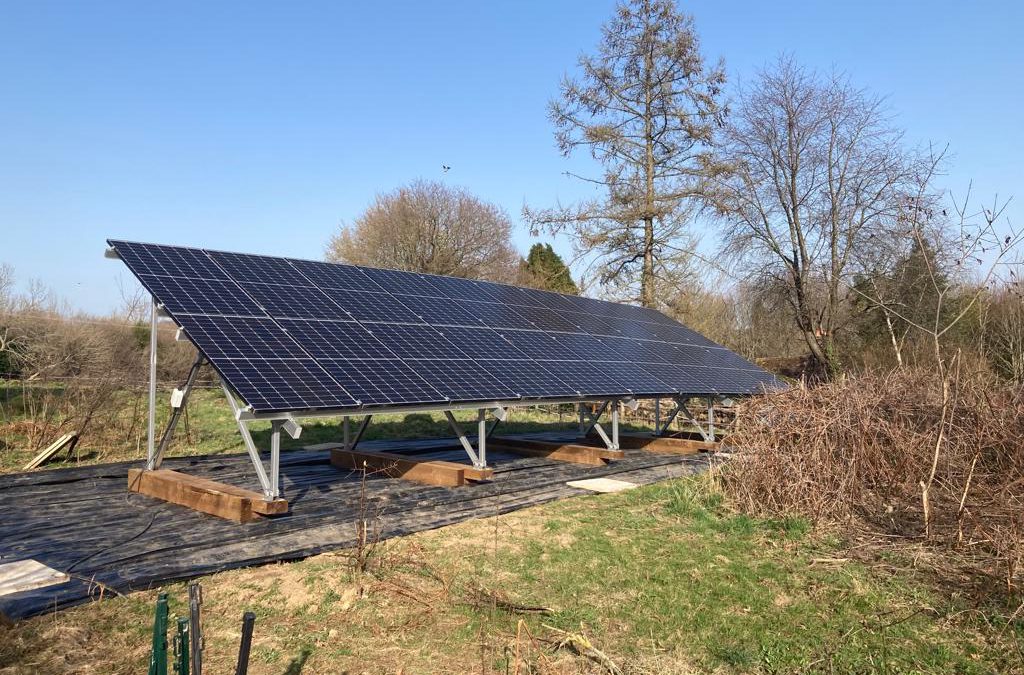☀️ Ground-mounted solar panels for gardens cost about 25%-35% more than roof-mounted ones
☀️ Portable solar panels can be set up in your garden and can power small electric devices like laptops
☀️ Solar-powered garden lights usually cost between about £20 and £150
Installing large roof-mounted solar panels can be quite costly, and not everyone has the necessary financial resources or sufficient roof space to accommodate them, even though the price of solar panels has gone down considerably in the last decade in the UK.
Fortunately, there are numerous affordable ways to incorporate solar panels into your garden.
If you prefer not to install solar panels on your roof and have ample garden space, a ground-mounted solar panel system in your garden could serve as an excellent alternative.
Interested in embarking on your solar panel journey, whether it’s through roof or ground installation? Simply complete our contact form, and we will contact you with competitive pricing options.
Can you install solar panels in a garden?
Yes, you have the option to set up solar panels in your garden. Moreover, as long as the solar panel system you install does not exceed nine square meters (9m²) in size, there’s normally no need for planning permission.
Garden solar panels encompass a range of configurations, and not all of them necessitate professional installation.
For spacious gardens, ground-mounted solar panels (solar panels securely anchored in the ground) are a viable choice.
On the other hand, if garden space is limited, you can consider smaller alternatives such as portable solar panels or even miniature solar panels designed to power garden lights— all of which you can easily assemble on your own.
Types of garden solar panels
A diverse array of garden solar panels is available in the UK, ranging from sizable ground-mounted solar panel systems to compact solar-powered garden setups. To help you determine which option may be most suitable for your specific needs, I have outlined the various types of garden solar panels below.
Ground-mounted solar panels
Ground-mounted solar panels, also known as standalone solar panels, are essentially the same type of solar panels you would typically install on your roof. However, as the name implies, ground-mounted solar panels are securely anchored into the ground using either a metal frame or a pole.
A single ground-mounted solar panel typically occupies approximately 2 square meters (2m2). However, it’s essential to position it at least 5 meters (5m) or 16.5 feet away from your house to ensure it remains free from any shading caused by the shadow of your house.
For a reasonably sized garden measuring around 15-20 square meters (15-20m2), you should have ample garden space for approximately one to three ground-mounted panels. By way of comparison, powering a 3-bedroom house would necessitate around 10 ground-mounted solar panels, requiring a large garden area of at least 50 square meters (50m2).
If you have an open area along a fence, you might also consider the possibility of installing solar panel fences.
Portable solar panels
Portable solar panels are small, compact, plug-in solar panels specifically designed to power smaller electrical devices like smartphones, laptops, or fans.
While they are commonly used for outdoor activities such as camping or caravanning, there’s no reason why you couldn’t set them up in your garden. Consequently, they are typically smaller in size compared to standard solar panels, with an average output ranging from 100 watts (W) to 200W, which is smaller than the output of a standard solar panel (250kW – 400kW).
Portable solar panels typically require the use of a solar generator, which combines a solar inverter, charge controller, and a solar battery. These components are essential for the safe operation of electrical devices powered by the portable panels.
Solar generators are often available as part of a complete portable solar panel kit, but they can also be purchased separately.
Solar-powered lighting
Unlike conventional garden lights, solar-powered lighting eliminates the need for disposable batteries or an outside electrical connection since it draws its power from the sun. Solar lighting is available in various designs similar to traditional garden lighting, including string lights, lanterns, spike lights, and lamp posts.
These garden lights are equipped with rechargeable batteries, an on/off switch, and miniature solar panels, typically positioned on top of the lamp or ornament, or at the end of the string of lights or lanterns.
During daylight hours, the solar panels generate electricity and store it in the batteries. Once darkness falls, the energy stored in the batteries is harnessed to illuminate the LED light that then lights up your garden.
Solar-powered water features
Solar-powered water features are ornamental garden decorations that include running water elements, such as miniature fountains, waterfalls or birdbaths.
Similar to solar-powered lights, these water features are equipped with compact solar panels and an on/off switch. However, the majority of them do not incorporate rechargeable battery storage since their design focuses on daytime operation when sunlight is abundant.
These garden water features operate continuously as long as they are exposed to sunlight, and high-quality models can even function on overcast or cloudy days.
How much do garden solar panels cost?
The expense associated with garden solar panels varies based on the specific type you select.
Ground-mounted solar panels represent the costliest choice. For instance, a solar PV system comprising ten solar panels, sufficient to provide power for a typical 3-bedroom house, entails an approximate cost of £10,000, including both purchase and installation.
Refer to the estimated table below for a breakdown of ground-mounted solar panel costs, which fluctuate in accordance with the property’s size.
| House size | Number of solar panels | Cost (including installation) | System size |
|---|---|---|---|
| Two-bedroom House | 6 | £8,000 | 12-18 m² |
| Three-bedroom House | 10 | £10,000 | 20-25 m² |
| Four-bedroom House | 14 | £14,000 | 30-35 m² |
| Five-bedroom House | 16 | £16,000 | 35-40 m² |
This table provides an overview of estimated average prices for residential solar panel installations. However, it’s important to note that ground-mounted systems can be about 25% to 35% more expensive than roof-mounted systems.
This increased cost is primarily due to the extended installation time associated with ground-mounted solar panels. Installing them entails tasks such as excavating the ground for wiring connections to your house, which adds to the overall expense.
In contrast, portable or miniature garden solar panels are significantly more budget-friendly than mounted solar PV systems, owing to their smaller scale and the fact that they do not require professional installation from an MCS Certified installer.
Small portable solar panels typically range in price from £120 to £500 per solar panel, depending on their size. Solar-powered lighting options vary in cost, with small fairy lights starting at around £20 and larger setups like lamp posts reaching approximately £150.
Solar-powered water features have a price range, with small decorative ornaments starting at about £80 and larger fountains, waterfalls or birdbaths going up to approximately £400.
Is your garden suitable for solar panels?
To make a garden suitable for solar panels, it should ideally receive a minimum of four hours of direct sunlight each day. Gardens that are shaded by trees or surrounded by buildings may not be the optimal choice for garden solar panels.
In the case of large ground-mounted solar panels, it’s also crucial to ensure that you have adequate space available. As mentioned earlier, a ground-mounted solar panel system capable of powering a 3-bedroom house necessitates a minimum of 50 square meters (50m2) of space.
It’s worth noting that ground-mounted solar panel installations exceeding 9 square meters (9m2) may require planning permission, with additional restrictions in place if your property is located within a conservation area. It’s advisable to thoroughly review all regulations on your local councils planning portal in advance.
However, for smaller setups involving portable solar panels, solar-powered lighting, or solar powered water features, the primary consideration is finding a spot in your garden that consistently receives uninterrupted sunlight, free from shading.
Conclusion
Clearly, there exists a myriad of possibilities for incorporating solar panels into your garden. Options range from budget-friendly solar lights to substantial ground-mounted solar panel systems capable of powering an entire house.
Regardless of the choice you make, harnessing solar panels offers an excellent opportunity to reduce electricity costs while simultaneously decreasing your carbon footprint.
Feeling motivated and ready to get a free no-obligation quote for a solar PV system for your garden? Want to learn more? Your best option is to talk to one of our friendly solar energy experts on 01268 928 690 or click on the ‘Enquire Now’ button below and we will help you find the right solar PV system for your garden and budget.
Frequently Asked Questions about Solar Panels for Gardens
If your property is situated within a conservation area, there may be more stringent regulations in effect to preserve the visual aesthetics and distinctive character of the environment. In such instances, it is probable that you will be required to obtain planning permission before proceeding with the installation of solar panels on your garden’s outbuilding or shed.
If you intend to set up a solar installation on your property that is separate from your main house, the initial standalone solar PV installation is typically classified as Permitted Development. However, if you plan to add more units beyond the first one, you will need to obtain planning permission for each additional unit.
If your solar panel installation adheres to legal regulations and meets standard requirements, your neighbors do not possess the authority to compel you to remove them. While they can express their concerns privately to you, they are not permitted to lodge a formal complaint.
Certainly, you have the option to install solar panels on an outbuilding or shed situated within your property. However, it’s imperative to ensure that the structure possesses the necessary stability to support the weight of multiple solar panels.
Solar-powered lighting remains functional during the winter months, albeit with potentially shorter operating periods. The reduction in performance is attributed to the fact that the solar panels, responsible for charging the lights’ rechargeable batteries, receive fewer hours of direct sunlight in winter compared to the summer season.
With shorter daylight hours and increased overcast weather, the panels generate less electricity during the winter months.
Latest Solar Panel Installation Posts
- Why Leisure Centres Should Invest in Solar Panels
 In recent years, the concept of sustainability has become increasingly vital in various industries, including leisure centres. As the global focus shifts towards environmental conservation and renewable energy sources, leisure centres are recognizing the importance of investing in sustainable practices to reduce their operating costs and their carbon footprint. One such sustainable solution gaining traction… Read more: Why Leisure Centres Should Invest in Solar Panels
In recent years, the concept of sustainability has become increasingly vital in various industries, including leisure centres. As the global focus shifts towards environmental conservation and renewable energy sources, leisure centres are recognizing the importance of investing in sustainable practices to reduce their operating costs and their carbon footprint. One such sustainable solution gaining traction… Read more: Why Leisure Centres Should Invest in Solar Panels - Is it worth buying solar panels in Basildon, Essex?
 ☀️ Over 10,000 homes in Basildon have a solar panel system installed. ☀️ You’ll normally break even on solar panels in less than 10 years. ☀️ A 3.5kW solar panel system will cost about £7,000 on average. Solar panels are becoming more affordable and more common in the UK, with over 1.3 million households already… Read more: Is it worth buying solar panels in Basildon, Essex?
☀️ Over 10,000 homes in Basildon have a solar panel system installed. ☀️ You’ll normally break even on solar panels in less than 10 years. ☀️ A 3.5kW solar panel system will cost about £7,000 on average. Solar panels are becoming more affordable and more common in the UK, with over 1.3 million households already… Read more: Is it worth buying solar panels in Basildon, Essex? - Unveiling the Perfect Fit: How Many Solar Panels Can Your Roof Handle?
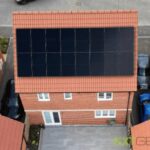 Harnessing the power of the sun is an attractive proposition for many UK homeowners. But before diving headfirst into solar energy, a crucial question arises: how many solar panels can fit on your roof? The answer, unfortunately, isn’t a simple one. It’s a captivating interplay between several factors, each one requiring careful consideration. Understanding Your… Read more: Unveiling the Perfect Fit: How Many Solar Panels Can Your Roof Handle?
Harnessing the power of the sun is an attractive proposition for many UK homeowners. But before diving headfirst into solar energy, a crucial question arises: how many solar panels can fit on your roof? The answer, unfortunately, isn’t a simple one. It’s a captivating interplay between several factors, each one requiring careful consideration. Understanding Your… Read more: Unveiling the Perfect Fit: How Many Solar Panels Can Your Roof Handle? - Powering Care with Sunshine: How Solar Panels Benefit Nursing Homes
 Nursing homes are the backbone of our communities, providing essential care for our elderly population. But keeping these facilities running smoothly requires a significant amount of energy – lighting, heating, cooling and medical equipment all contribute to a hefty energy bill. This is where commercial solar panels come in, offering a win-win solution for both… Read more: Powering Care with Sunshine: How Solar Panels Benefit Nursing Homes
Nursing homes are the backbone of our communities, providing essential care for our elderly population. But keeping these facilities running smoothly requires a significant amount of energy – lighting, heating, cooling and medical equipment all contribute to a hefty energy bill. This is where commercial solar panels come in, offering a win-win solution for both… Read more: Powering Care with Sunshine: How Solar Panels Benefit Nursing Homes - Who are NXTGEN Energy Ltd?
 NXTGEN Energy Ltd are a solar energy company based in Rayleigh, Essex, UK. They specialize in the installation of solar panels, battery storage systems, and electric vehicle chargers for homes and businesses across the UK. They are MCS certified, which means they meet the Microgeneration Certification Scheme’s standards for quality and safety. This makes them… Read more: Who are NXTGEN Energy Ltd?
NXTGEN Energy Ltd are a solar energy company based in Rayleigh, Essex, UK. They specialize in the installation of solar panels, battery storage systems, and electric vehicle chargers for homes and businesses across the UK. They are MCS certified, which means they meet the Microgeneration Certification Scheme’s standards for quality and safety. This makes them… Read more: Who are NXTGEN Energy Ltd? - Why UK Homeowners with Solar Panels Need Bird Proofing (Beyond the Basics)
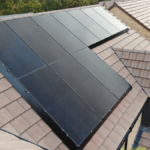 Imagine waking up to the quiet hum of your solar panels, generating clean energy to power your home. It’s a beautiful image, symbolizing lower electricity bills and sustainability. But what if a gang of birds decided the solar panels on your roof were the perfect spot for their new condo complex? Unfortunately, this idyllic scene… Read more: Why UK Homeowners with Solar Panels Need Bird Proofing (Beyond the Basics)
Imagine waking up to the quiet hum of your solar panels, generating clean energy to power your home. It’s a beautiful image, symbolizing lower electricity bills and sustainability. But what if a gang of birds decided the solar panels on your roof were the perfect spot for their new condo complex? Unfortunately, this idyllic scene… Read more: Why UK Homeowners with Solar Panels Need Bird Proofing (Beyond the Basics) - How AI could supercharge your solar panels
 Imagine stepping outside on a crisp January morning, a mug of steaming tea warming your hands. You glance at your rooftop, not with dread at energy bills, but with a mischievous grin. Why? Because the sun, that cheeky orb in the sky, is being squeezed for every juicy watt it holds thanks to your AI-powered… Read more: How AI could supercharge your solar panels
Imagine stepping outside on a crisp January morning, a mug of steaming tea warming your hands. You glance at your rooftop, not with dread at energy bills, but with a mischievous grin. Why? Because the sun, that cheeky orb in the sky, is being squeezed for every juicy watt it holds thanks to your AI-powered… Read more: How AI could supercharge your solar panels - Unprecedented growth in the renewable sector driven by solar power
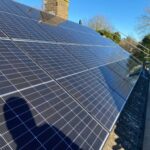 The year 2023 marked a significant milestone in the realm of renewable energy, as solar power emerged as the driving force behind a remarkable 50% surge in global capacity. This remarkable achievement was revealed in the International Energy Agency’s (IEA) Renewables 2023 report, solidifying it as the 22nd consecutive year of record growth in renewable… Read more: Unprecedented growth in the renewable sector driven by solar power
The year 2023 marked a significant milestone in the realm of renewable energy, as solar power emerged as the driving force behind a remarkable 50% surge in global capacity. This remarkable achievement was revealed in the International Energy Agency’s (IEA) Renewables 2023 report, solidifying it as the 22nd consecutive year of record growth in renewable… Read more: Unprecedented growth in the renewable sector driven by solar power - The Allure of Solar and the Pitfalls of Price
 The allure of renewable energy is undeniable. Lowering your carbon footprint while achieving energy independence – it’s a win-win proposition. However, navigating the solar investment landscape can be fraught with hidden costs, particularly when lured by the siren song of bargain-basement prices. Consider the contrasting paths of Dean and Richard, both homeowners embarking on the… Read more: The Allure of Solar and the Pitfalls of Price
The allure of renewable energy is undeniable. Lowering your carbon footprint while achieving energy independence – it’s a win-win proposition. However, navigating the solar investment landscape can be fraught with hidden costs, particularly when lured by the siren song of bargain-basement prices. Consider the contrasting paths of Dean and Richard, both homeowners embarking on the… Read more: The Allure of Solar and the Pitfalls of Price - Why Manufacturing & Logistics Businesses need to invest in Warehouse Solar Panels
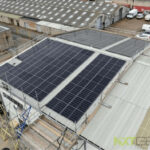 Electricity and energy consumption are major expenses for manufacturing and logistics businesses, as they need them to operate machinery, illuminate and heat their facilities, and transport their goods. Warehouse solar panels can significantly reduce these costs and enhance the company’s financial performance, while also contributing to its sustainability objectives. Installing commercial solar panels on your… Read more: Why Manufacturing & Logistics Businesses need to invest in Warehouse Solar Panels
Electricity and energy consumption are major expenses for manufacturing and logistics businesses, as they need them to operate machinery, illuminate and heat their facilities, and transport their goods. Warehouse solar panels can significantly reduce these costs and enhance the company’s financial performance, while also contributing to its sustainability objectives. Installing commercial solar panels on your… Read more: Why Manufacturing & Logistics Businesses need to invest in Warehouse Solar Panels - Advantages of Solar Panels in the UK
 Solar Power: Shining a Light on the UK’s Green Future The UK’s embrace of renewable energy is blossoming, with solar power playing a leading role. This surge reflects a national commitment to a greener, more sustainable future. But what exactly are the benefits of solar panels for UK homeowners and businesses? Let’s dive into the… Read more: Advantages of Solar Panels in the UK
Solar Power: Shining a Light on the UK’s Green Future The UK’s embrace of renewable energy is blossoming, with solar power playing a leading role. This surge reflects a national commitment to a greener, more sustainable future. But what exactly are the benefits of solar panels for UK homeowners and businesses? Let’s dive into the… Read more: Advantages of Solar Panels in the UK - Why Your Business Should Invest in Commercial Solar Panels
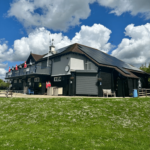 Solar panels on houses and residential properties have become increasingly common in the last year. The number of individuals seeking a more sustainable way of living continues to grow each year. However, the pursuit of a greener existence is not limited to domestic life. Investing in commercial solar panels is an excellent way to reduce… Read more: Why Your Business Should Invest in Commercial Solar Panels
Solar panels on houses and residential properties have become increasingly common in the last year. The number of individuals seeking a more sustainable way of living continues to grow each year. However, the pursuit of a greener existence is not limited to domestic life. Investing in commercial solar panels is an excellent way to reduce… Read more: Why Your Business Should Invest in Commercial Solar Panels

